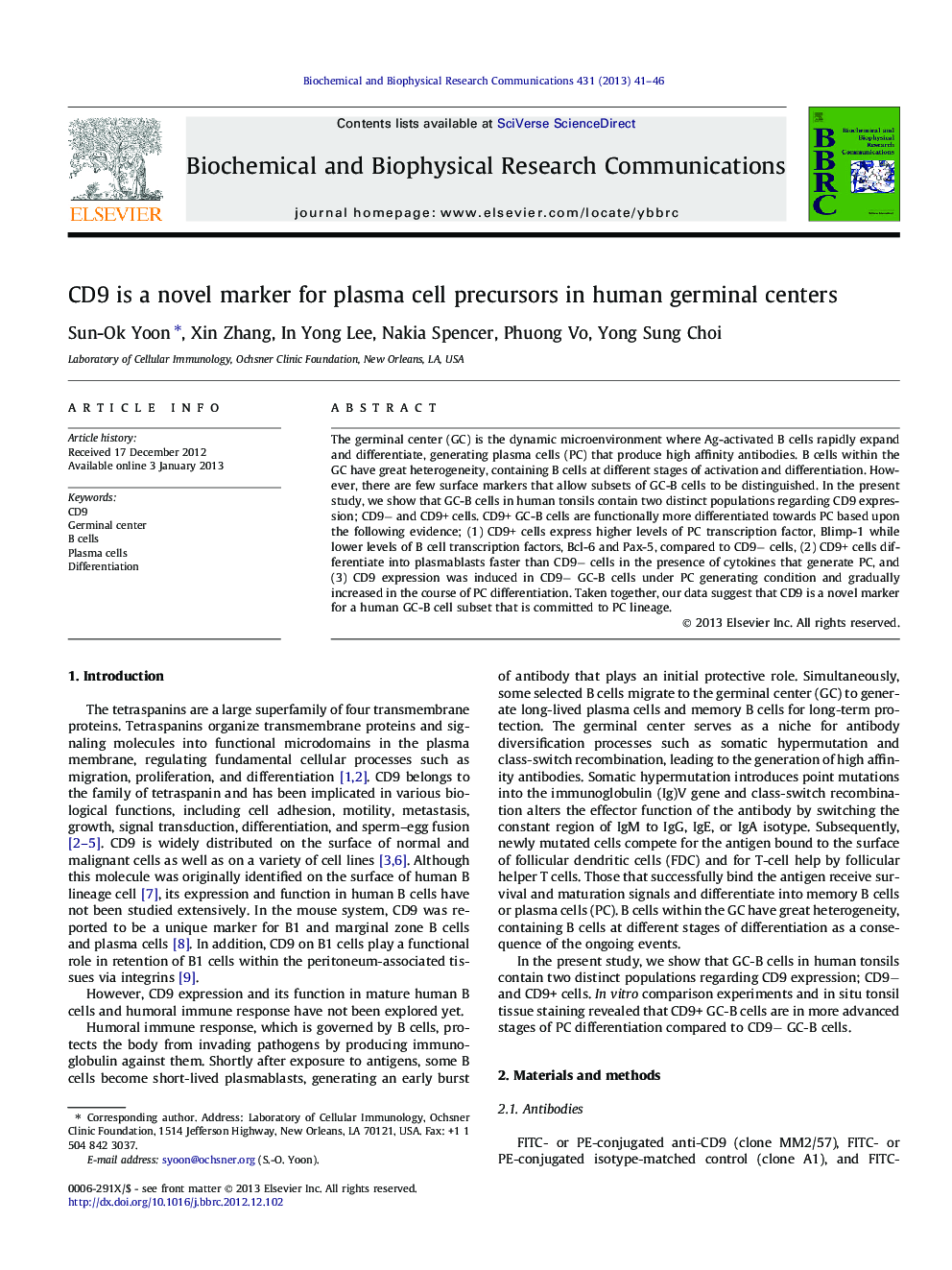| Article ID | Journal | Published Year | Pages | File Type |
|---|---|---|---|---|
| 1928920 | Biochemical and Biophysical Research Communications | 2013 | 6 Pages |
The germinal center (GC) is the dynamic microenvironment where Ag-activated B cells rapidly expand and differentiate, generating plasma cells (PC) that produce high affinity antibodies. B cells within the GC have great heterogeneity, containing B cells at different stages of activation and differentiation. However, there are few surface markers that allow subsets of GC-B cells to be distinguished. In the present study, we show that GC-B cells in human tonsils contain two distinct populations regarding CD9 expression; CD9− and CD9+ cells. CD9+ GC-B cells are functionally more differentiated towards PC based upon the following evidence; (1) CD9+ cells express higher levels of PC transcription factor, Blimp-1 while lower levels of B cell transcription factors, Bcl-6 and Pax-5, compared to CD9− cells, (2) CD9+ cells differentiate into plasmablasts faster than CD9− cells in the presence of cytokines that generate PC, and (3) CD9 expression was induced in CD9− GC-B cells under PC generating condition and gradually increased in the course of PC differentiation. Taken together, our data suggest that CD9 is a novel marker for a human GC-B cell subset that is committed to PC lineage.
► Human tonsillar B cell subsets express CD9 differentially. ► Germinal center (GC) B cells contain CD9+ and CD9− populations. ► CD9+ GC-B cells are in more advanced stages of PC differentiation. ► CD9 expression is induced in the course of GC-B cell differentiation to PC.
